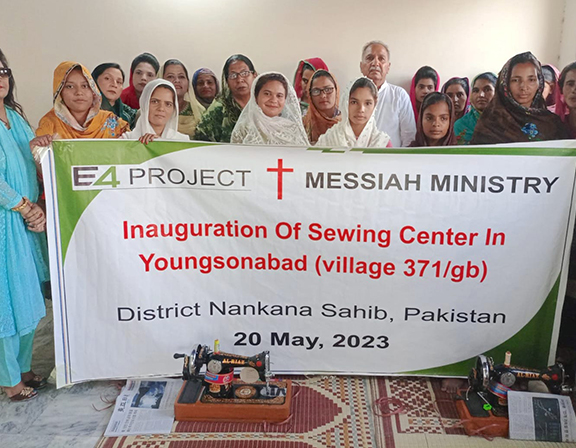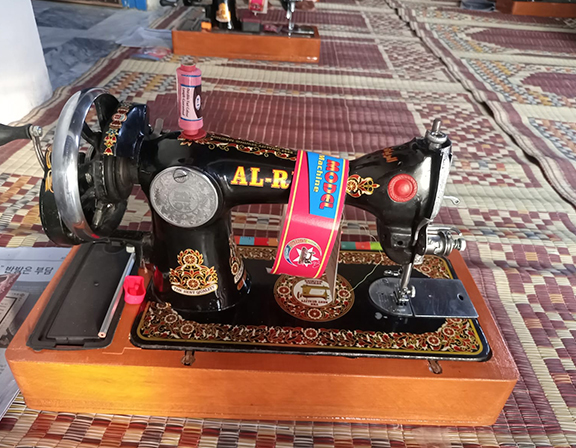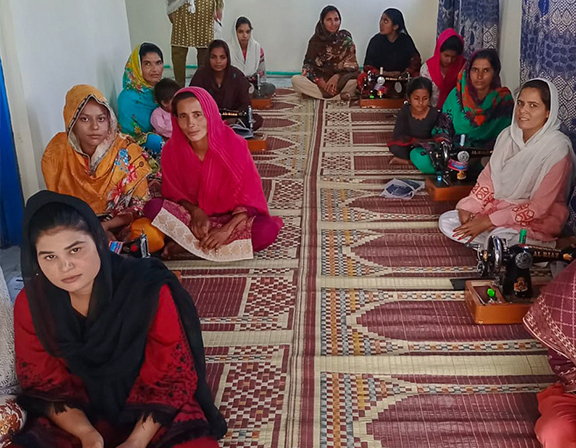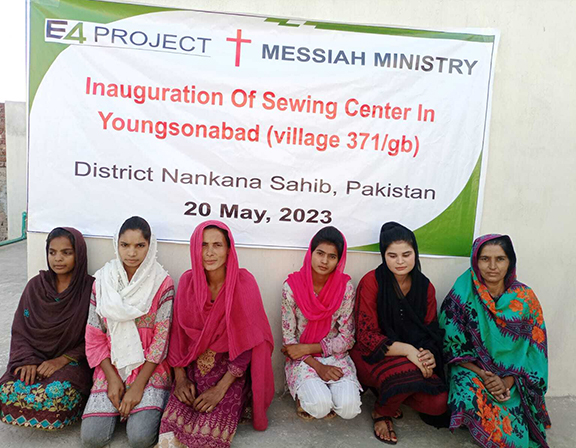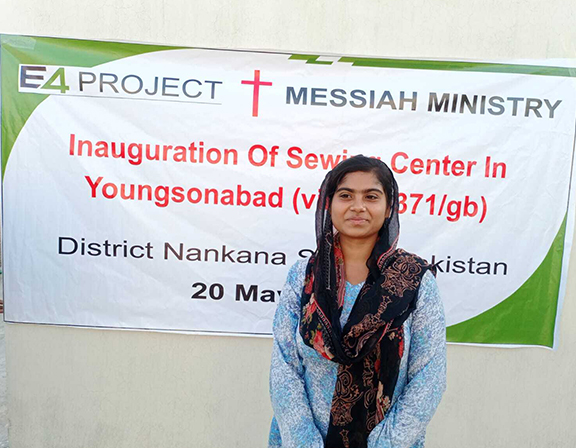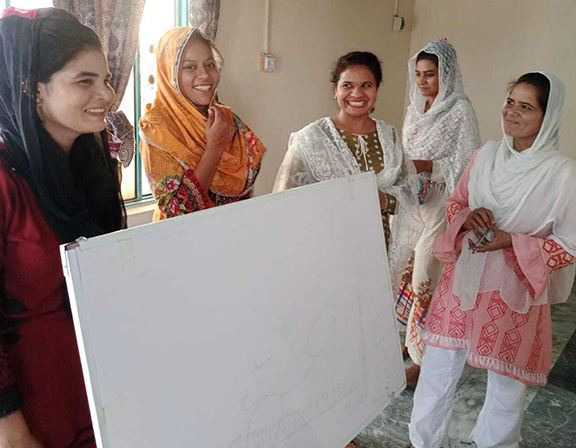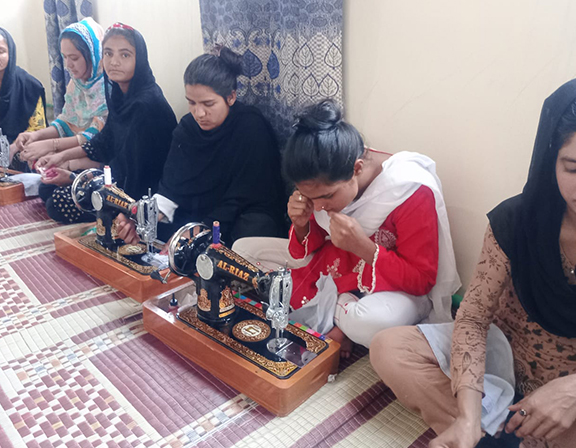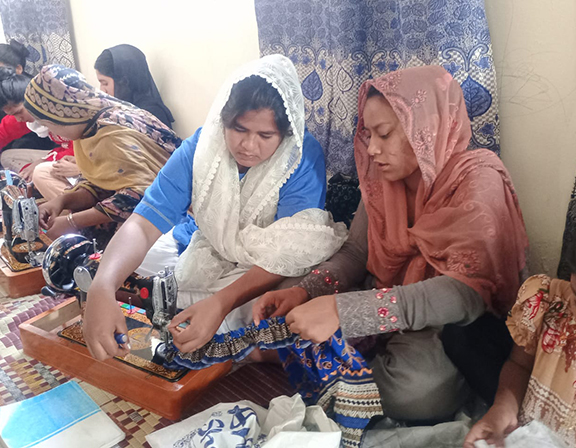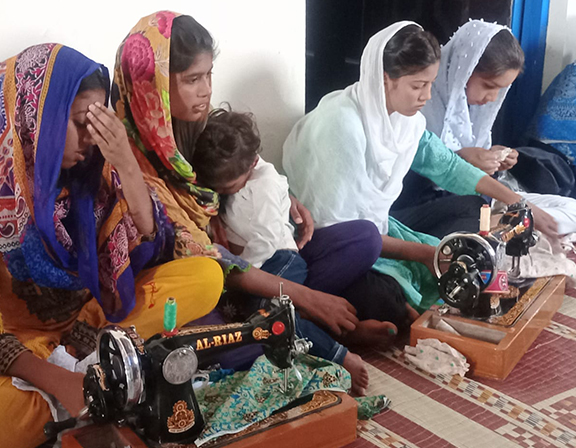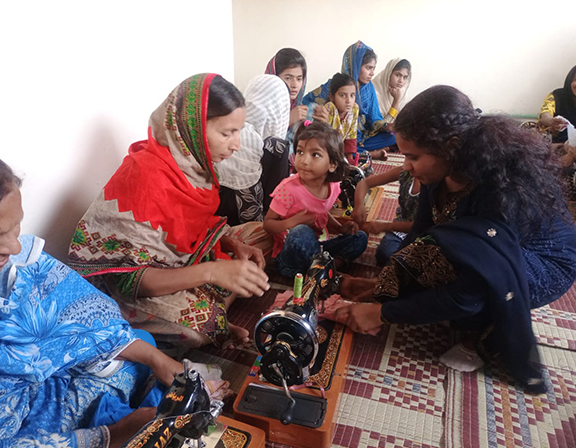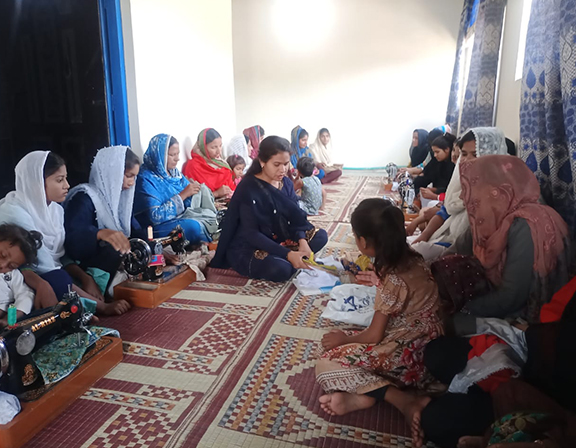This partnership and program have been slowly forming since 2015. At the time, Shafquat Nawabdin, the founder of Messiah Ministries, was living in Michigan and attending one of our partner churches. When Co-founder, Eric Schmidt, visited Bridge Community Church in 2015, Shafquat asked Eric if E4 would ever work in Pakistan. Eric replied that it was a possibility if we had a solid partner there. Shortly after this time, God called Shafquat back to Pakistan to spread the Gospel and help people in the village area where he was raised. He soon began Messiah Ministries. Our staff has kept in touch with him over the years, and in the summer of 2022, Messiah Ministries contacted us about providing mosquito nets to his village. They suffered from a severe malaria outbreak due to extreme heat that caused villagers to sleep outside their homes without mosquito protection. The mosquito net distribution in Youngsonabad was a successful project, and we felt confident to explore more significant ideas with Messiah Ministries. After months of discussions, brainstorming, and evaluation, we are excited to announce our new sewing training center in Youngsonabad, Pakistan.
Many Pakistani rural girls drop out of school due to the inability to keep up with tuition/school expenses and the necessity of working (usually a menial, very low-paying job) to help put food on the table.
There is a significant need for skills training for young women in Pakistan. Messiah Ministries saw this need and, with E4’s help, established a sewing center in Youngsonabad in Central Punjab, Pakistan, in May 2023, to provide rural girls and women an opportunity to learn a valuable, income-generating skill, equipping them to lead a life of self-reliance and dignity. Our new training program consists of two six-month classes annually, providing skill training to 50 women annually. The young Christian and Muslim women will receive training at the sewing center for six months and, upon graduation, receive a sewing machine to take home. Two local seamstresses will train them in more advanced sewing skills, and each training day will include Biblical training and spiritual support to encourage holistic growth and care. The young women selected for the program are between the ages of 15-25 and have been chosen by Messiah Ministries, village elders, and the families from the village.
The cost for the first year is $6,500. If you are interested in helping these women have access to a dignified source of income, click Donate below!

